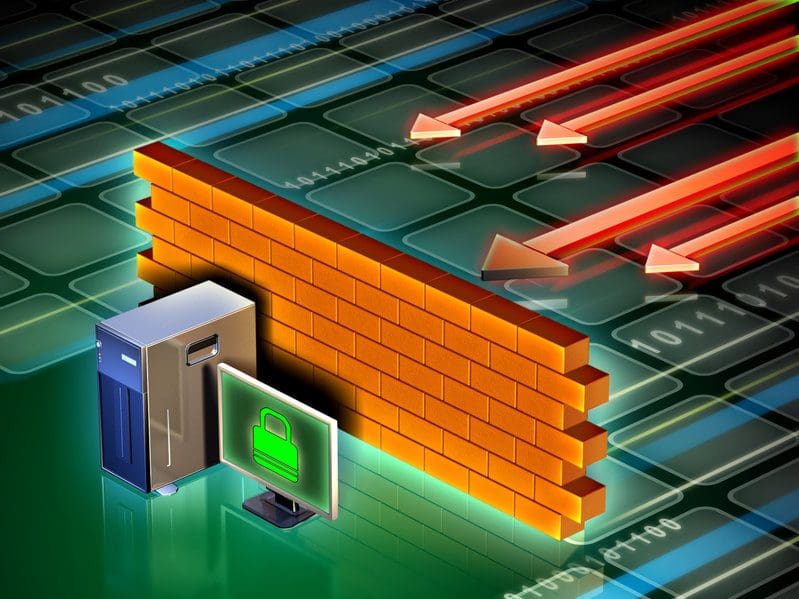There are two sides to everything; there is the positive side and also the negative side. Digitalization has clearly advanced industries and organizations like never before, including the oil & gas sector. Introducing more sophisticated technology and solutions like the Industrial Internet of Things (IIOT) has enhanced productivity, improved performance, and also significantly reduced cost for the industry.
However, this technological advancement is not without its flaws. It has made the oil & gas sector vulnerable to dangerous cyber-attacks. These attacks, if successful, are capable of bringing a company’s operations to an utter standstill, thus resulting in enormous loss of money, reputation, and even lives and environmental disasters in some cases. In fact, the weight of a successful cyber attack can be more lethal than anyone could imagine. And this is the most worrisome aspect of it; The breadth and complexity of the threat.
Cyber attacks in the oil and gas industry threaten every arm of the organization. From the information technology (IT), its operational technology (OT), and any internet of things (IoT) systems in place.
Most times, cybersecurity awareness training is isolated to office-based staff, however, the oil and gas industry has a hugely varied workforce, with employees working in different roles from truck drivers to engineers to finance officers, and working in various environments from offices, to mine sites to offshore rigs.
Despite the varied roles and operating environment in the oil and gas industry, everyone is susceptible to cybersecurity threats. Every sector can be attacked. Hence, it’s only ideal that every employee in the oil and gas industry is exposed to cybersecurity training on identifying and resolving vulnerabilities.
Introducing cybersecurity awareness into occupational health and safety awareness will allow all staff to become aware of the implications of a cyber attack, what they need to do to help prevent such an attack, and ultimately, how to respond to such attack to minimize damages and loss.
Below are important things to know about cybersecurity in the oil & gas industry.
Information Technology and The Operation Technology Sectors
The information and operation technology departments are the most vulnerable sectors in an organization and that makes them the target for cyber attacks. Hence, it becomes both a business imperative and a legal requirement that the two sectors are well shielded.
Cyber attacks can lead to information losses and operational outages – challenges which also have further implications for an organization’s governance obligations, and in the oil & gas a breach in sensitive data security such as, past purchases, mining locations, and iron ore pricing, could lead to competitive advantages, and sometimes, the damage can be irreparable.
Hence, The Privacy Act requires organizations to report any data breaches if the information leaked could cause serious harm to an individual.
The operation technology sector, over the years, has been facing an increase in cyber-attacks and this is due to its proximity to the information technology sector. Thus, it becomes very crucial to incorporate cybersecurity into the regular operations and lifecycle of the sector to ensure that cyber threats are continually reviewed, and risks mitigated.
How To Protect Against Cyber Attacks
Now that we’ve successfully identified the severity of damage of a successful cyber attack in the information and operation technology sectors, let’s look at how to protect against the attacks.
Considering the sophistication of these attacks, and the damages they can incur, responses to cyberattacks must be multilayered. It’s less about repelling the most common attacks and more about the approach. The approach must be nuanced, effective, and timely.
More so, in the Oil & Gas Industry, it’s not only about addressing the security of the traditional IT and OT environments. Cybersecurity must also factor in the extra complexities from the IoT, and also integrate innovative digital business process disruptors, such as robotic process automation, blockchain, and artificial intelligence. Simply put, security measures must be incorporated into every facet of the industry operations.
Below are key features to know about cybersecurity in the Oil & Gas Industry:
- Employee security awareness is very crucial and a vital frontline defense. It includes integrating cybersecurity consciousness, password discipline to protect against different malware and phishing attacks. This should not be restricted to employees in the IT and OT sectors only.
- Advanced tools such as antivirus software, intruder detection, and protection systems (IDS and IPS), consistent patch management, and encryption technologies are very important to protect the integrity of your data and sensitive data.
- Considering the elevated rate of cyber attacks in the world today, it’s safe to say every industry will, at some point, be attacked. Hence, it boils down to how prepared and quickly an organization can respond to such attacks. For a start, having a Security Operation Center (SOC) at the heart of your company’s cyber threat and detection response is a good one. SOCs help to identify and remove hidden attackers and defeat likely threat scenarios targeting the organization’s most critical assets. It structures, coordinates, and monitors all cybersecurity activities as well as the dark web for any possible breaches.
- Also, some threats and attacks, such as cyber-physical threats, will be frequent, especially in the Oil & Gas Industry where many are still trying to adjust to the digital transformation in the industry. Hence, organizations should integrate agility into their cybersecurity activities to enhance quick response. And in a well-governed environment, practices like structure-by-design are incorporated to ensure rapid response to unexpected cyber threats.
New Technology In Cybersecurity
To enhance cybersecurity practices in the Oil & Gas sectors, here are a few of the latest technologies.
Deep Armor Industrial
Deep Armor Industrial is an advanced cybersecurity system that uses artificial intelligence (AI) to monitor and detect cyber-attacks to protect the oil & gas industry’s endpoint OT.
The sophisticated and creative AI-based system provides next-generation antivirus, threat detection, application control, and zero-day attack prevention to the sector. It offers the Oil & Gas Industry an excellent level of cybersecurity monitoring and protection.
Event Monitoring
Event Monitoring completely takes off manual labor and helps the team, especially those in the OT sector, focus on more value-added tasks.
It delivers an automated real-time log aggregation and threat correlation software that enables visibility of the entire OT environment to the security teams.
Cyber Security Workplace
Cyber Security Workplace provides operators with control and visibility into security patches, frequency of backups, and critical hardening measures. It also allows customers to easily automate their routine and fundamental security maintenance of their plants, and also ensure the control system is updated regularly.
Nozomi Networks Solution
Accurate asset discovery, superior threat detection, and flexible, scalable deployment, and many more are what Nozomi Networks Solution offers to the Oil & Gas Industry. It provides cyber resiliency and real-time operational visibility to customers around the world. The innovative solution also delivers deep network visibility and OT cybersecurity all of which are vital for the oil & gas sector.
Conclusion
Apparently, Oil & gas companies must have adequate security patches in place to prevent attackers from intruding on their organization’s industrial environment.
More so, the procedures to continuously update and improve the deployed security solutions, and prepared effective responses in the advent of cyber-incident must be a priority to every organization.
Cyber attacks are at an all-time high, hence, having a mature cybersecurity posture is the required foundation needed to realize the benefits of digitalization for oil & gas companies.
David Lukić is an information privacy, security and compliance consultant at IDstrong.com. The passion to make cybersecurity accessible and interesting has led David to share all the knowledge he has.







